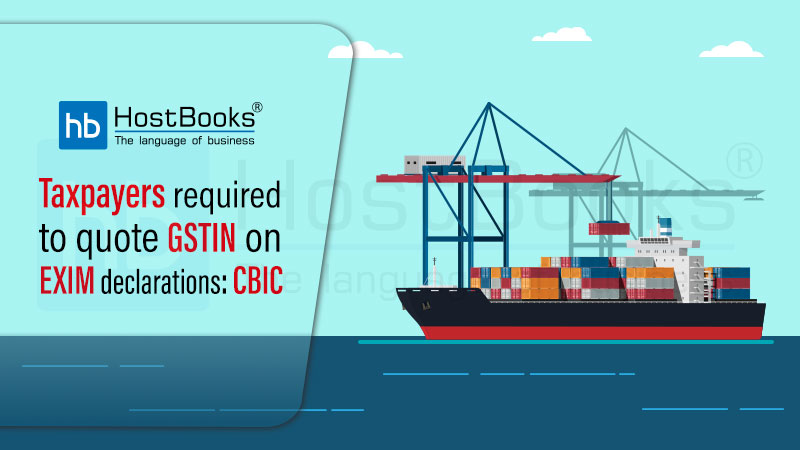Taxpayers required to quote GSTIN on EXIM declarations: CBIC

Source: Economic Times
The Central Board of Indirect Taxes and Customs (CBIC) issued a circular clarifying that registered taxpayers are required to declare GST Identification Number (GSTIN) on their EXIM declarations. It is intended to improve the all-round coverage of GST supplies. In spite of being registered with the GST Network (GSTN), some cases have been detected where an importer or exporter did not declare their GSTIN in the Bill of Entry/Shipping Bill.
The declaration of GSTIN will also be made mandatory in import/export documents with effect from February 15th, 2020 for the importer and exporters who are registered as GST taxpayers. The revenue authorities through the use of data analytics have detected cases of tax evasion through the black market and under-valuing of imports.
Moreover, authorities have also found that although importers are paying GST, the goods have been supplied without the issuance of a bill. These importers are typically paying integrated GST (IGST) on goods that they import into the country. The tax paid is supposed to be set-off against the actual GST paid by the end consumer or availed as a refund.
Goods and Services Tax Identification Number or GSTIN is a unique 15-digit PAN-based identification number allotted to every registered person under GST. When importing goods, importers are required to fill the Bill of Entry with the Customs department, while exporters fill the Shipping Bill. The CBIC noticed that the imported goods were supplied to the domestic channels without issuing a bill.
As importers are paying IGST on imported goods without issuing a bill, they have been unable to claim credit for the same. The supply of imported goods is also done without a bill. The tax paid is expected to be set-off against the GST paid by the end consumer or claimed as a refund.

